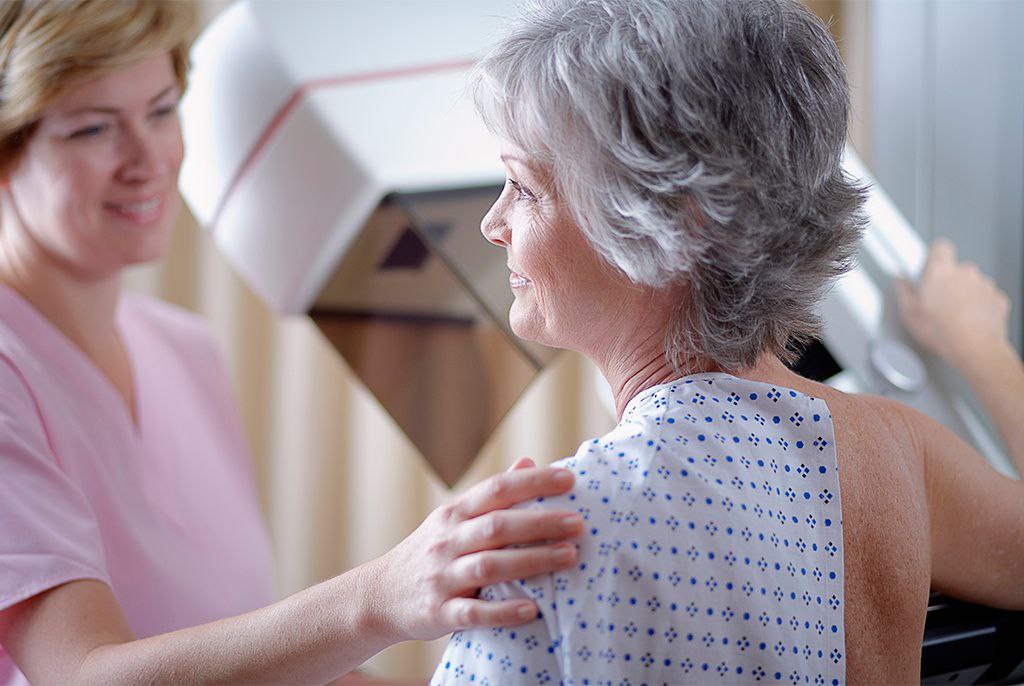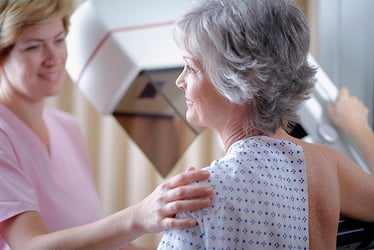
The Mammogram Debate: How Old is Too Old?
Updated from the original publication on October 12, 2015.
 The verdict is still out. How old is too old to get a mammogram? October is National Breast Cancer Awareness Month; therefore, it's only fitting we shed some light on the mammogram debate. We all know early detection is key in treating any disease, but how early is too early for women to have mammograms?
The verdict is still out. How old is too old to get a mammogram? October is National Breast Cancer Awareness Month; therefore, it's only fitting we shed some light on the mammogram debate. We all know early detection is key in treating any disease, but how early is too early for women to have mammograms?
The U.S. Preventive Services Task Force (USPSTF) recommends women age 50-74 have biennial screenings while the American Cancer Society recommends annual screenings for women begin at age 40. Despite the varying recommendations between these leading health groups, one thing is for sure…Mammograms are still the most effective screening tool used for early detection of breast cancer.
But why the age gap? We may never know, or fully understand these opposing points of view, but let's take a look at what we do know. According to breastcancer.org—a nonprofit dedicated to providing information and building a support community for those affected by the disease—mammograms have been shown to lower the risk of dying from breast cancer by 35%. This fact alone should have women talking to their doctor about the benefits and risks of getting a mammogram. With that said, it's important to note that the mammogram isn't the only tool in your arsenal for detecting breast cancer early on. Complementary tools such as clinical breast examinations, ultrasounds, and MRIs can and should be discussed with your healthcare professional. In addition, women should conduct their own breast self-examinations (BSE) to help detect changes and abnormalities in breast tissue. Nipple discharge, change in size, color, or lumps should be brought to the attention of your doctor.
When talking with your doctor about having a mammogram, or preforming any of the screenings listed above, come prepared with questions in hand. Asking a family member or trusted friend to come along for emotional support can alleviate any stress or nervousness you may be feeling. Make sure you do some research before your scheduled appointment. The doctor will want to know your complete family medical history and if any other family members have been diagnosed with the disease.
Questions to Ask Your Doctor
- Is a mammogram right for me?
- Is there anything I should do to prepare for my mammogram?
- What are the different types of mammograms (Screening v. Diagnostic, 2D v. 3D)?
- Will my insurance or Medicare cover the cost?
- What will my financial responsibility be?
- How long will the procedure take?
- How long will it take to receive the results and how will I be notified?
- Can I have the report sent to other doctors?
- What happens if the results come back abnormal?
Whether you're 40 or over the age of 50, talk with your doctor and weigh the benefits and risks of getting a mammogram. Your doctor can help you determine the best course of action for your situation. For women who are at higher risk for developing breast cancer, your doctor may suggest earlier and more frequent screenings.
It's time to take charge of your health. Be honest with yourself and your doctor. It's also OK to seek a second opinion. Stay healthy through exercise, nutrition, and seek the support of family, friends, and other breast cancer survivors. Don't forget, women aren't the only ones affected by the disease. Men, it's important for you to stay "in the know" about your health, too. The American Cancer Society estimates about 2,350 new cases of invasive breast cancer for men in 2015.
About Presbyterian Senior Living
As the trusted leader in aging services, Presbyterian Senior Living combines over 95 years of experience with innovative approaches to senior communities and services. Across our 27 communities in PA, MD, OH, and DE, we serve over 6,500 seniors. We are committed to: FOSTERING teamwork and responsibility. UPHOLDING integrity in every action. EMBRACING innovation to create opportunities for everyone’s success. LEADING with compassion and respect.


